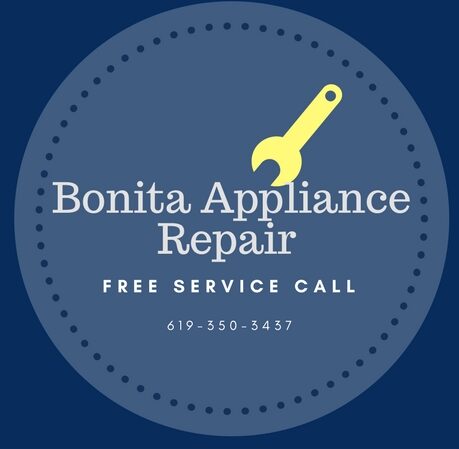“20 Effective Ways to Determine Whether to Repair or Replace Your Appliance”
Are you grappling with the daunting decision of whether to repair or replace your malfunctioning appliance? It’s a tough call, but fear not! This article is here to guide you through the process.
We’ll explore key factors like lifespan, repair costs, functionality, and environmental impact to help you make an informed choice.
We’ll also discuss the benefits of professional repairs, tips for finding a new appliance, and the importance of warranty coverage.
Get ready to uncover the most cost-effective and efficient solution for your appliance conundrum. Let’s dive in!
Key Takeaways
- Consider the age and expected lifespan of the appliance when evaluating the cost of repair compared to the cost of a new appliance.
- Assess the availability of replacement parts for the current appliance before making a decision.
- Evaluate the energy efficiency and potential savings with a new appliance, looking for the Energy Star label.
- Take into account the environmental impact of older appliances and the benefits of upgrading to a more efficient appliance.
#1 Warranty Coverage
When deciding whether to repair or replace an appliance, it’s important to consider your appliance warranty coverage. Review the details of your appliance warranty, including the terms and conditions. Determine if the warranty is still active and what repairs or replacements are covered.
Some warranties may cover certain parts or repairs for a specific period of time. Evaluating your warranty coverage can help you make an informed decision about whether to proceed with repairs or opt for a replacement. It’s essential to understand the extent of your warranty and how it can impact your decision.
Considering warranty coverage ensures that you take full advantage of any available benefits and make the most cost-effective choice for your appliance.
#2 Appliance Lifespan
Considering the appliance lifespan is crucial when deciding whether to repair or replace it, as it helps determine the most cost-effective and practical option for your needs.
The lifespan of an appliance refers to the estimated amount of time it’s expected to function properly before experiencing significant issues or breakdowns. Different appliances have varying life expectancies, with dishwashers and washers typically lasting around 10 years, and refrigerators and dryers lasting around 13 years.
When evaluating whether to repair or replace an appliance, it’s important to consider the remaining lifespan of the appliance and compare it to the cost of repairs. If the repair cost is significantly less than the price of a new appliance and the repaired appliance is expected to last for a considerable period, repairing it may be the more cost-effective choice.
However, if the appliance is nearing the end of its expected lifespan or has a history of frequent breakdowns, it may be more practical to replace it.
#3 Cost Comparison
To determine whether to repair or replace an appliance, it’s important to compare the cost of repairs to the price of a new appliance. Consider the following factors in the cost comparison process:
Repair costs: Evaluate the cost of repairing the appliance. If the repair cost exceeds 50% of the price of a new appliance, it may be more cost-effective to replace it.
Price of a new appliance: Compare the cost of purchasing a new appliance to the repair costs. If the repair cost is less than half the price of a new appliance, repairing it may be a better option.
Remaining lifespan: Take into account the appliance’s remaining lifespan. If it’s near the end of its expected lifespan, it may be more practical to replace it rather than investing in costly repairs.
#4 Appliance Functionality
Assess if your appliance still meets your needs. Evaluate if the appliance performs its intended function. Consider keeping the appliance if it still gets the job done. Determine if new features or energy efficiency are desired. Decide based on functionality and personal preferences.
When considering whether to repair or replace an appliance, the functionality of the appliance is a crucial factor to consider. If the functionality issues are minor and repairable, opting for a repair may be the best course of action. However, if the appliance has a history of frequent breakdowns or if the repair is only expected to provide a temporary fix, it may be more practical to replace the appliance.
Evaluate the availability of replacement parts for the appliance. Assess whether newer models offer improved functionality or additional features.
Ultimately, the decision to repair or replace an appliance when considering functionality depends on various factors, including personal satisfaction.
#5 Extending Appliance Lifespan
Extend the lifespan of your appliance by implementing proper maintenance and timely repairs. This won’t only help you save money but also reduce the environmental impact of disposing of appliances prematurely.
Here are some tips to consider:
- Regularly clean your appliances to prevent food and dust buildup, ensuring their smooth operation.
- Keep vents clear to avoid overheating and potential damage to internal components.
- Replace filters as needed to maintain optimal performance and prevent clogs.
By following these maintenance practices, you can enhance the longevity of your appliance and avoid the need for premature replacement.
Additionally, seeking expert diagnostics for repair or replacement advice can help you make informed decisions about the best course of action for your appliance.
#6 Factors to Consider
When deciding whether to repair or replace an appliance, there are several important factors you should take into consideration.
First, evaluate the age of the appliance. If it’s relatively new and still within its expected lifespan, repairing it may be a more viable option. However, if the appliance is older and has already surpassed its typical lifespan, replacing it might be a better choice.
Next, assess the cost of repairs. Compare the repair costs to the price of a new appliance. If the repair costs are significantly lower than the cost of a replacement, repairing the appliance may be more cost-effective.
Additionally, consider the severity of the issue. If the problem is minor and easily repairable, it may be more practical to opt for a repair. However, if the problem is significant and recurring, or if multiple components are failing, replacing the appliance could be a better long-term solution.
Another factor to consider is the energy efficiency of the appliance. Older appliances tend to be less energy-efficient compared to newer models. If the current appliance consumes excessive energy, replacing it with a more energy-efficient model can result in long-term cost savings and environmental benefits.
Technological advancements should also be taken into account. Determine whether newer models offer significant technological advancements or enhanced features that would improve your experience. If the current appliance lacks modern features or if newer models provide improved functionality, replacing the appliance may be a worthwhile investment.
Additionally, anticipate potential future maintenance needs and the overall reliability of the appliance. If the appliance has a history of frequent breakdowns or requires costly repairs, it may be more practical to replace it rather than continually investing in repairs.
Finally, consider personal preferences and satisfaction. If you’re dissatisfied with the current appliance’s performance or if it no longer meets your needs, replacing it with a new appliance that better aligns with your preferences may be the preferred choice.
#7 Repairing Vs. Replacing
To determine whether to repair or replace your appliance, consider the following factors:
Cost-effectiveness: Compare the cost of repairs with the price of a new appliance. If repairs are inexpensive compared to a replacement, repairing may be more cost-effective.
Age and condition: Assess the age and overall condition of the appliance. If it’s relatively new and in good working condition, repair may be a sensible choice. However, if it’s older or prone to issues, replacing it could be more reliable.
Availability of parts: Check if replacement parts are readily available. If it’s difficult to find compatible parts, replacing the appliance may be more practical.
Ultimately, the decision to repair or replace an appliance depends on various factors. Consider these aspects to make an informed choice that suits your needs and budget.
#8 Hiring a Professional
Consider hiring a professional appliance repair company like Bonita Appliance Repair. When assessing whether to repair or replace your appliance, as they can provide expertise and ensure the repairs are done correctly.
When it comes to repairing your dryer, it’s important to evaluate the complexity of the repair and the technical expertise required. Some dryer issues may be simple enough for you to handle on your own, especially if you have experience or access to reliable DIY resources. However, if the problem is more complex or requires specialized knowledge, hiring a professional is recommended.
Additionally, safety concerns should be taken into account, especially with appliances involving electrical components or gas connections. Hiring a professional with the necessary expertise can help ensure that the repairs are carried out safely.
Lastly, consider the cost of hiring a professional and compare it to the price of a new dryer. If the repair costs are significantly lower, hiring a professional may be the more cost-effective option. For local appliance repair in San Diego call 619-329-5938.
#9 Tips for Finding a New Appliance
To find a new appliance that meets your needs, prioritize research and comparison of different brands, models, and features. Consider the following tips:
- Research reliable appliance brands and models to ensure quality and durability.
- Evaluate energy efficiency ratings to save on utility bills and reduce environmental impact.
- Read user reviews and ratings to get insights into the performance and reliability of appliances.
- Compare prices and features to find the best value for your budget.
- Assess the warranty coverage for new appliances to ensure protection and peace of mind.
#10 Is it better to replace all appliances at once?
When considering whether to replace all appliances at once, it’s important to weigh the benefits and drawbacks of such a decision.
Replacing all appliances simultaneously can have its advantages. Firstly, it ensures consistency in terms of age, condition, and functionality throughout your kitchen or home. This can create a more uniform look and feel. Additionally, replacing all appliances at once can potentially save you money in the long run. Newer models are often more energy-efficient, which can lead to reduced utility bills.
However, there are also drawbacks to replacing all appliances at once. The upfront cost can be significant, and it may not be necessary if some appliances are still in good working condition. It’s important to assess each appliance individually and consider the cost-effectiveness of repair versus replacement for each one.
#11 Appliance Lifespan and Repair Costs
When considering the lifespan and repair costs of appliances, it’s important to assess each appliance individually and determine the cost-effectiveness of repair versus replacement for each one.
This involves evaluating the age of the appliance, the cost of repairs, and the cost of buying new. Additionally, it’s crucial to factor in the appliance’s remaining lifespan and the reliability of the brand.
To aid in decision-making, it’s recommended to compare repair costs to the price of a new appliance. If the repair cost is over 50% of the new appliance price, it may be more cost-effective to consider replacement.
On the other hand, if the repair cost is less than half the price of a new appliance, repair is a better option.
#12 Appliance Prices and Repair or Replace Advice
Consider comparing the prices of new appliances and the cost of repairs to determine whether it’s more beneficial to repair or replace your appliance.
When it comes to appliance prices, it’s important to note that they’ve risen more than the overall inflation rate. In the past, Consumer Reports advised replacing appliances when repair costs exceeded 50% of the replacement cost. However, they now offer interactive tools that take into account purchase price, age, and repair cost to provide more tailored advice.
This tool is more likely to recommend repairing if the appliance was expensive upfront. It’s worth considering that costly repairs on less expensive appliances may be worthwhile if they extend the appliance’s useful life.
#13 Environmental Impact and Recycling
Repairing or replacing an appliance can have a significant environmental impact, especially when it comes to reducing landfill waste and contributing to climate change. Here are some important points to consider regarding the environmental impact and recycling of appliances:
- Extending the lifespan of appliances reduces the amount of e-waste that ends up in landfills.
- The EPA’s Responsible Appliance Disposal program promotes the recycling of refrigerators and freezers, which contain harmful chemicals.
- The Earth911 Recycling Search database can help you find recycling facilities for all major appliances.
By choosing to repair your appliance instead of replacing it, you can help reduce your environmental footprint and contribute to a more sustainable future.
Recycling is an essential part of responsible appliance disposal, and it’s important to explore recycling options in your area.
#14 Signs of Appliance Malfunction
If your appliance is making strange noises, experiencing frequent power outages, leaking, performing inconsistently, emitting unusual smells, or producing smoke, these are all signs of appliance malfunction.
These indicators suggest that there may be underlying issues with your machine, cooktop, or fridge that need to be addressed.
Strange noises could indicate a problem with the motor or internal components, while frequent power outages may be a sign of electrical issues.
Leaks can point to problems with the plumbing or seals, and inconsistent performance may indicate faulty sensors or controls.
Unusual smells and smoke could signal electrical or mechanical problems.
If you notice any of these signs, it’s important to address them promptly to prevent further damage and ensure the proper functioning of your appliance.
#15 Factors to Consider
When deciding whether to repair or replace an appliance, it’s important to take into account several factors that will help you make an informed decision.
Consider the age of the appliance, the cost of repairs, and the cost of buying new. Evaluate the product-specific depreciation rates and the reliability of the brand. Assess if the appliance still meets your needs and performs its intended function.
Think about the availability of replacement parts and the warranty coverage for repairs. Additionally, factor in the appliance’s remaining lifespan and the impact on your daily life.
#16 Troubleshooting and Warranty
To troubleshoot and determine if your appliance is covered under warranty, check if the appliance is plugged in and verify that circuit breakers haven’t tripped. These simple steps can help you identify if there is a simple fix for your appliance issue. If the problem persists, consult the owner’s manual or your records to check if the appliance is still under warranty. If it is, you can schedule a service call to have it repaired by a qualified technician. Additionally, consider the benefits of an extended warranty or repair coverage for added protection. Here is a table summarizing troubleshooting steps and warranty considerations:
| Troubleshooting Steps | Warranty Considerations |
|---|---|
| Check if appliance is plugged in | Consult owner’s manual or records |
| Verify circuit breakers haven’t tripped | Determine if appliance is under warranty |
| Ensure flooring hasn’t become uneven | Schedule a service call if under warranty |
| Clean vents and filters to avoid clogging | Explore options for extended warranty or repair coverage |
| Troubleshoot common issues before assuming it’s broken |
#17 Assessing the Appliance’s Lifespan
Assess the lifespan of your appliance by comparing its remaining years of use to the cost of repairs and the potential benefits of replacement. Consider the following factors:
- Age of the appliance: Determine how long the appliance has been in use.
- Cost of repairs: Compare the cost of repairing the appliance to the price of a new one.
- Cost of buying new: Evaluate the cost of purchasing a new appliance.
By considering these factors, you can make an informed decision about whether to repair or replace your appliance.
Keep in mind that older appliances may have a shorter remaining lifespan and may require more frequent repairs. On the other hand, newer appliances may still have many years of use left and may offer improved features and energy efficiency.
Ultimately, the choice between repair and replacement depends on your specific circumstances and preferences.
#18 DIY Repair and Precautions
If you’re considering DIY repair for your appliance, there are a few precautions you should keep in mind. DIY repair, also known as do-it-yourself repair, can be a cost-effective option for fixing your home appliance.
Before you begin, make sure to utilize DIY repair videos and user manuals for troubleshooting guidance. If your appliance manual is missing, you can search for it online. However, be cautious when purchasing nonrefundable electrical replacement parts, as they may not be compatible with your appliance.
Additionally, take precautions when moving and opening heavy appliances to avoid injury. Lastly, check the warranty terms of your appliance to ensure that your DIY repair efforts won’t void your coverage.
#19 Evaluating Energy Efficiency
Consider evaluating the energy efficiency of your appliance to determine if it’s time for a replacement. Evaluating energy efficiency can help you make an informed decision about whether to repair or replace your appliance.
Here are some key factors to consider:
Energy Savings: Assess the potential energy savings of new appliances compared to your current one. Look for energy-efficient models that have the Energy Star label.
Cost Analysis: Compare the cost of upgrading to a more energy-efficient appliance with the potential savings on your energy bills. Calculate the payback period to determine if the investment is worth it.
Longevity: Take into account the lifespan of your current appliance versus the expected lifespan of a new, energy-efficient model. Consider the potential long-term savings and environmental benefits.
#20 Hidden Costs of Replacing Appliances
Calculate the overall expenses beyond the price tag when replacing appliances to avoid hidden costs. When considering replacing an appliance, it’s important to take into account the additional costs that may arise.
These hidden costs can include modifications to cabinetry or countertops to accommodate the new appliance, as well as the cost of gas connections for gas appliances. Electrical wiring and circuit upgrades may also be necessary for advanced models.
Additionally, accurate measurements should be taken to ensure that the new appliance fits in the existing space.
Frequently Asked Question Related to Repair Or Replace Your Appliance
Is it better to repair or replace a broken appliance?
It depends on the age and condition of the appliance, as well as the cost to repair versus the cost of a new one.
How do I know if my appliance is at the end of its useful life?
Signs that your appliance may be at the end of its useful life include frequent breakdowns, difficulty finding replacement parts, and a significant decrease in efficiency.
What are considered major household appliances?
Major household appliances typically include refrigerators, washers, dryers, dishwashers, and certain cooking appliances like ovens and stoves.
When is it more cost-effective to replace rather than repair an appliance?
If the cost to repair the appliance is approaching or exceeds 50% of the cost of a new one, it may be more cost-effective to replace it.
What should I consider when deciding whether to repair or replace an old appliance?
Factors to consider include the age of the appliance, the cost of the repair, its current efficiency, and the availability of parts for repairs.
How can I determine if it’s worth repairing an old appliance?
If the cost to repair the appliance is significantly less than the cost of a new one, and it still has a reasonable lifespan ahead, it may be worth repairing.
When is it probably time to replace an appliance rather than repair it?
If an appliance is consistently malfunctioning, requiring frequent repairs, and is no longer efficient, it is probably time to consider replacing it.
Is it better to repair or replace a washing machine that isn’t working?
Depending on the age and extent of the issue, it may be more cost-effective and practical to replace a non-functional washing machine rather than repairing it.
What factors should I take into account when deciding to repair or replace household appliances?
Consider the age, condition, and efficiency of the appliance, as well as the cost of the repair versus the cost of a new one, to make an informed decision.
How do I know if it’s time to buy a new refrigerator or repair the old one?
Evaluate the cost of the repair, the age and condition of the refrigerator, and its energy efficiency to determine if it’s more practical to repair or replace it.
Conclusion
In conclusion, when deciding whether to repair or replace your appliance, it’s crucial to consider factors such as warranty coverage, appliance lifespan, cost comparison, functionality, and energy efficiency.
However, here’s an interesting statistic to consider: Did you know that nearly 9 out of 10 households in the United States have at least one major appliance? This highlights the widespread reliance on appliances and the importance of making informed decisions to ensure both cost-effectiveness and environmental sustainability.
If your looking for appliance service in San Diego. Call 619-326-5938 ti schedule an appoitnment or help you make the right decision. Of wheter you should repair or replace your appliance. Bonita Appliance Repair can help you today.

Discovering San Diego's Historic Treasures
Are you ready to embark on a journey through time and explore San Diego’s historic treasures? Join us as we take you on a captivating

Outdoor Adventures in San Diego County
Are you ready to dive into a world of outdoor adventures? Look no further than San Diego County. This breathtaking paradise is like a treasure

Top Restaurants in San Diego
Are you craving a culinary adventure in San Diego? Look no further, because this vibrant city is brimming with top-notch restaurants that will satisfy your

The Complete Guide to Hotpoint Appliance Maintenance in San Diego
Are your appliances leaving you in hot water? Don’t let them burn a hole in your pocket. Introducing The Complete Guide to Hotpoint Appliance Maintenance
Why Choose Professional Hotpoint Appliance Repair Services in San Diego?
Why Choose Professional Hotpoint Appliance Repair Services in San Diego? When it comes to Hotpoint appliance repair services in San Diego, choosing a professional service
Hotpoint Appliances: Common Issues and When to Call a Repair Service in San Diego
Hotpoint Appliances: Common Issues and When to Call a Repair Service in San Diego Are your Hotpoint appliances having Common Issues and ready to Call

